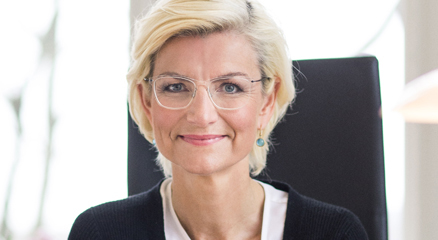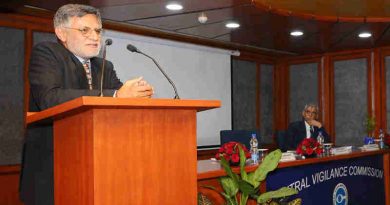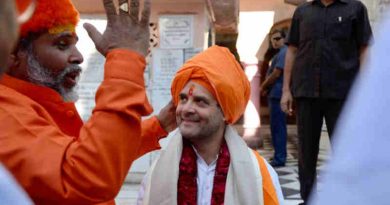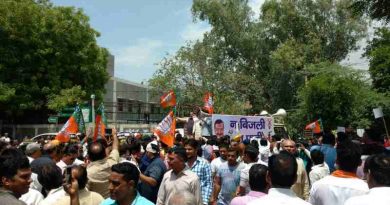Appropriate Legal System Needed to Combat Corruption: Ulla Tørnæs

Appropriate Legal System Needed to Combat Corruption: Ulla Tørnæs
December 7, 2018
Ms Ulla Tørnæs, Denmark Minister for Development Cooperation, sheds light on a slew of corruption issues and the anti-corruption remedies that can be used to combat corruption.
Ms Tørnæs shares her views in an exclusive email interview with Rakesh Raman, the managing editor of Raman Media Network (RMN).
Here’s the interview: [ Click here to download the pdf version of this interview. ]
In most poor countries, the definition of corruption is not quite clear. Governments in these countries think that bribery is the only form of corruption. How will they deal with corruption when they don’t know what corruption is. Can you define corruption for such countries?
The Ministry of Foreign Affairs defines corruption as the misuse of entrusted power for private gain. This broad definition covers a range of different types of corruption such as bribery, extortion, embezzlement, etc.
I think the task for governments is to analyze the specific contextual challenges of corruption and address them accordingly. There are no one-size-fits-all solutions in this regard.
Still, there are some concrete tools that have been tested successfully which could serve as inspiration to others, such as making public procurement processes digital and thereby mitigating the risk of corruption in public procurement.
What are the three main reasons of corruption in poor countries?
No country in the world is free from corruption. Each country is facing different challenges depending on the specific context.
What we see in the Danish Development Cooperation is that weak governance structures and institutions are correlated with corruption. This is especially the case in fragile states. Furthermore, the degree of social trust in the society as well as trust in public institutions can also have an influence on the level of corruption.
Of course, it can sometimes be a complex task to determine the causation between corruption on the one hand and low levels of social trust and weak institutions on the other hand as the two factors are mutually reinforcing.
It’s seen that bureaucratic inefficiency is perhaps the worst form of corruption that impedes the flow of government services to the citizens. But there are no established yardsticks to measure its impact. How do you propose to empirically measure the effect of bureaucratic inefficiency so it could be treated as a corruption crime?
I think the distinction between inefficiency and corruption is very important. To the extent that the cause of inefficiency lies in a lack of capacity or insufficient resources to provide effective service delivery it is not necessarily linked to corruption if there is no malign intent behind the inefficiency.
That being said, bureaucratic inefficiency can be related to corruption insofar as corrupt acts can be a reason for inefficiency; for example, if bribes are being paid in a procurement process so that the public is not receiving the best value for money.
Although corruption has adverse impact on businesses, it has far worse effects on ordinary citizens who find it difficult to prove corruption and ultimately have to live with it. How can citizens be protected from bureaucratic and political corruption?
The challenge posed by corruption is complex and involves many different actors. Therefore, we need to apply a multi-stakeholder approach to fighting corruption. We need governments to provide an appropriate legal system and strong institutions. We need civil society and independent media to hold governments to account. We need to engage in dialogue with the private sector about how to ensure integrity in the business community in order to secure a level playing field based on free and functioning markets.
This October (2018) Denmark hosted the 18th International Anti-Corruption Conference (IACC) in cooperation with Transparency International and the IACC Council. On the first day of the conference, I convened a high-level segment bringing together ministers from all over the world and leaders from international organizations and private corporations around the same table to discuss current corruption challenges and how to build a global coalition against corruption.
Among other things the high-level segment resulted in a set of statements from the participants on what concrete actions they will take to combat corruption in their respective countries or organizations.
In a poor, underdeveloped country like India, the entire political ecosystem thrives on corruption. Then why should lawmakers make stringent laws to weed out corruption from the country?
I do not necessarily agree that in developing countries the entire political ecosystem thrives on corruption. I think every step is important and that every step counts. Obviously, there are no quick fixes to fight corruption. It is a long process.
A Danish scholar has studied the history of corruption in Denmark and her research demonstrates how the seeds of the low level of corruption in the public sector in Denmark can be traced back to centuries.
Inaction is part of the problem. The rallying call of this year’s IACC was: Now is the time to act. The effects of corruption is simply too devastating in the way it can destabilize societies for us to postpone action.
We need to engage at all levels and to be determined and steadfast over a long period of time. The fight against corruption is a fight that can be won, but also one that never stops.
What can be the role of technology to stop corruption?
Technology offers new avenues to fight corruption. We should embrace the new possibilities technology brings and use it proactively in the service of the public good. At the same time, it is crucial to be aware of the challenges and the existing problems which cannot be solved just by application of new technology.
At the IACC, I presented a new report on digital avenues to anti-corruption. The report illustrates how technological tools can be applied in the fight against corruption – how the use of open data and open contracting can provide transparency, how the use of e-governance can mitigate corruption opportunities, how the use of blockchain can ensure rights and limit the opportunities for bribery in transactions, and how the use of crowdsourcing can enable whistleblowing and complaints over corruption.
A topic that is very relevant in this regard is how the gender divide also applies in this area. When large parts of the world population, especially women, do not have access to new technology, these new digital avenues to tackle corruption are only open to some – to the digitally included, most of whom are men.
A number of the current gender imbalances – for example unequal access to economic resources and women’s lack of fundamental rights – are particularly important to consider when embarking on digitalization in anti-corruption, because these inequalities risk robbing women of the opportunity to benefit fully from initiatives aimed at fighting corruption.
For example, as women have less access to technology and many women have not had the possibility to acquire the same digital literacy that men have; then if anti-corruption solutions are based on technology, which women may not have access to or are fully able to use, then the gender gap may widen.
Closing the gender gap, also within digitalization, is crucial if we are to reap the benefits of new technologies. This is why, gender mainstreaming and girls’ and women’s rights and opportunities form an important part of Denmark’s TechVelopment engagement.
A member of the Liberal Party, Ms Ulla Tørnæs is a Danish politician who currently serves as the Minister for Development Cooperation of Denmark. Earlier, from 1994 to 2014, she was a member of the Danish Parliament (Folketing).
The excerpts from this interview will be published in the January 2019 issue of The Integrity Bulletin which is a monthly newsletter that covers international corruption news and issues.
[ Click here to download the pdf version of this interview. ]




